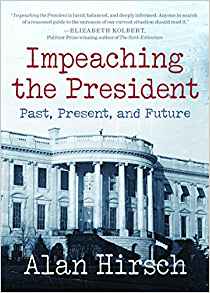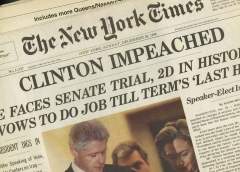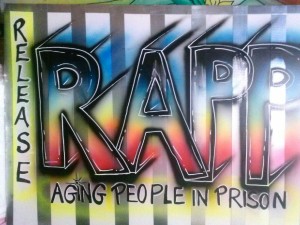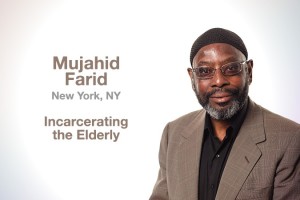Podcast: Play in new window | Download
Impeaching the President: Past, Present and Future
Two U.S. presidents have been impeached: Andrew Johnson in 1868, and Bill Clinton in 1998. Richard Nixon would have been impeached but he resigned in 1974. Rumblings of impeaching the winner of the 2016 president elections even took place before the votes were in. Opponents of Hillary Clinton cited her use of a private e-mail server as Secretary of State as reason. Opponents of Donald Trump cited his business interests disqualified him. Possible criminal activities involving the Trump campaign added fuel to those calls.
Restraints on executive power exist because he greatest risk of tyranny comes from the executive branch. That’s partly because the president is a single person. In contrast, Congress and the Supreme Court must persuade a majority of their colleagues in order to act. As well, presidential authority as commander in chief includes the power to deploy weaponry as the head of the military and law enforcement.
The nation’s founding fathers value checks on tyranny. in part because of oppression by the British monarchy. At the Constitutional Convention some delegates opposed making one person responsible for executing the nation”s laws. While it decided in favor of a one-person executive, it adopted provisions aimed at preventing the president from becoming king-like.
Limits including four-year terms and voter approval to stay in office. The founders knew that even in four years the president could do much damage. So they created a mechanism for quicker replacement of the President if needed. The House of Representatives could “impeach” him, an accusation of wrongdoing that would prompt a trial in the Senate. If the Senate voted by two-thirds vote to convict the president, it would automatically result in removal from office. Impeachment can also be used to remove all federal officers.
Guest – Alan Hirsh, author of Impeaching the President: Past, Present and Future. Alan is a Lecturer in Humanities and Chair of Justice and Law Studies at Williams College. He’s also the author of For the People: What the Constitution Really Says About Your Rights and A Citizen’s Guide to Impeachment.
—-
Remembering Mujahid Farid, Lead Organizer of Release Aging Persons in Prison
Today we remember and celebrate the life of Mujahid Farid who passed away last week in New York. Listeners will recall that Farid had been on Law and Disorder several times in the last few years, along with Laura Whitehorn and Dave George from his organization Release Aging Persons in Prison. In 1978, Farid was sentenced to 15 years to life in prison. He was 28 years old. He first became eligible for parole in 1993. He had earned four college degrees including two masters degrees while incarcerated. He was denied parole nine times. As we’ve discussed in prior segments, New York state parole commissioners denied his requests as with many others based on the nature of his crime rather than he many accomplishments he made while in prison.
In an article in the Village Voice, Farid noted that he asked the commissioners: “Is there anything I can do to make myself eligible for release?” He didn’t get a response but said he saw disapproving changes in the body language and facial expressions of the commissioners that his question wasn’t welcome. He was denied again. These denials added 18 years to his incarceration.
In 2011, Farid appeared before the parole boar for the tenth time. He stood before two new commissioners who had high rates of granting parole and that year, Farid was released. Farid became a 2013 Soros Justice Fellow. During his confinement, in 1987 Farid was part of a trio that created and proposed the first HIV/AIDS peer education program in New York State prisons, that later developed into the widely acclaimed state-wide program called PACE (Prisoners AIDS Counseling & Education). Farid participated in the creation of a college certificate program sponsored by New York Theological Seminary, and he taught introduction to sociology courses for people training for Alcohol and Substance Abuse (ASAT) counseling certification.
Since his release Farid initiated two programs designed to have an impact on dismantling mass incarceration: The RAPP Campaign and the Rise & Shine Small Business Coalition, the latter providing support for the creation and start-up of community businesses operating on principles of social entrepreneurship. In 2013 Farid was awarded a joint New York State legislative commendation for his community work and a Citizens Against Recidivism, Inc. award for social activism.
As listeners may recall, the number of people aged 50 and older in New York State, where RAPP was founded, has doubled since 2000; it now exceeds 10,000— which is about 20% of the total incarcerated population. This reflects a national crisis in the prison system and the extension of a culture of revenge and punishment into all areas of our society.
RAPP focuses on aging people in prison, many of whom are long-termers convicted of serious crimes. Many of these human beings have transformed their lives and developed skills and abilities they lacked before incarceration. They could be released from prison with little or no threat to public safety. Yet many are denied release, often for political reasons, and they needlessly remain imprisoned into old age. These elders could return to their communities if current mechanisms such as parole and compassionate release were correctly utilized.
Farid, you are in our thoughts and we send you our love.
Guest – Laura Whitehorn is a former political prisoner and native New Yorker, who was active in supporting groups such as the Black Panther Party, the Black Liberation Movement and was active with Students for a Democratic Society and the Weather Underground. Laura worked to help expose the FBI’s Counter Intelligence programs.
Guest – Mujahid Farid co-founded the Prisoners AIDS Counseling and Education program and helped design prison-based sociology and theology courses that allowed others to earn college-credited in prison. He also earned four college degrees and other certifications while incarcerated, including his paralegal certificate, NYS Department of Labor Certificate in Human Development Counseling, and NYC Department of Health Certificate in HIV/AIDS Counseling.
—————————-
—————————-




